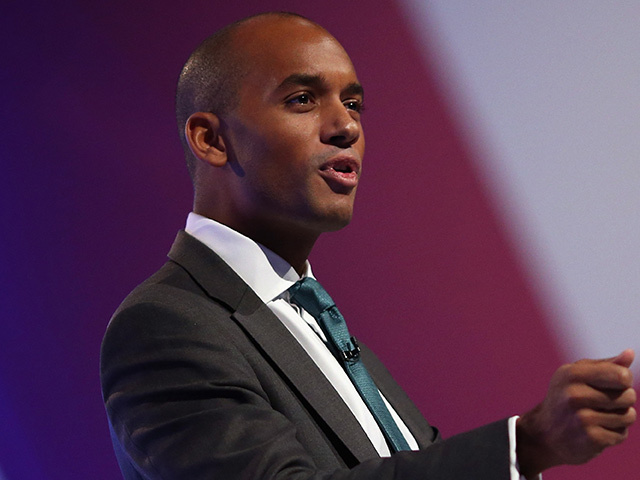
A senior Labour MP has questioned whether the new UK energy minister’s focus on the vital brief could be “diluted” because he has two jobs.
Shadow Business Secretary Chuka Umunna expressed concerns yesterday about the decision to add the energy role to the wide-ranging responsibilities of the business minister.
Prime Minister David Cameron’s shock reshuffle in March saw Michael Fallon take over a portfolio which covers the oil and gas industry, renewables, nuclear, coal, carbon capture and storage, energy security, and implementing the new energy bill.
However, he also kept his former role as business and enterprise minister, overseeing firms’ access to finance, creating a low carbon economy, deregulation and the legacy from last year’s London Olympics.
Mr Fallon told the Press and Journal in April that combining the roles, which were previously linked, made sense. He said he was “full-time energy and full-time BIS (business, innovation and skills department)”.
However, Mr Umunna told Energy Voice last night: “They are two big jobs, which does call into question the ability of one person to do both
“It’s no secret that I think the appointment has occurred because the disjointed nature of the relationship between DECC (the department of energy and climate change) and BIS, at a political level it’s not known for being very strong.
“I think he has been sent in to resolve that, but I think the problem is that it could end up diluting his focus on either of the roles he’s been given.
“Being minister of state for business and enterprise is a huge brief as it is within the business department, to then add on to that the energy brief as well calls into question the ability of one person to do all those things, no matter how intelligent or personable they may be.”
Mr Umunna, widely described as a “rising star” of Labour and a possible future leader, arrives in Aberdeen today for talks with oil and gas industry leaders.
He said he wanted to hear their views as Labour draws up its plans for the its bid to return to power in 2015.
The MP for Streatham could not rule out future tax changes affecting the North Sea sector, but insisted that Labour would put long-term stability at the heart of its agenda, referring to the coalition government’s surprise £10billion tax raid in the 2011 Budget.
In an interview with the Energy Voice, he said: “Of course there are always ongoing discussions about how the industry is taxed, but although they objected to the decision that was made at the time, I think one of their biggest issues was that it was totally unexpected.
“It came out of the blue and completely messed up their long-term investment plan.
“I think we need to see more long-termism in UK business but ultimately politicians have a large part to play in changing that, in moving away from short-termism, because we need to provide the right policy environment to facilitate that change.
“Certainly that is our intention and that is what we will work towards, more policy certainty.
“It wouldn’t be wise for me to say ‘we’re not going to change anything’, because I’m not sure that’s our role, and also you don’t know what unexpected things will arise, but I absolutely recognise the complaints that have been made.
“Look, we weren’t perfect ourselves in government about providing that certain policy element, but I think we’re a hell of a lot better than the current government.
“People in the energy intensive industries and people who work in and around the green economy in particular are hugely critical of how much uncertainty there has been in those areas.
“I think the worst thing we could do is, without good reason, make sudden changes in policy, without giving anybody any indication of what is to come.”
Fiscal policy was not the only item on Mr Umunna’s agenda when he arrives in Aberdeen
“The taxation issue is of course the one that has been most prominent at a national level, but I wanted to get a deeper understanding of their issues going forward,” he said.
“Not just to get a better under standing with 2015 (UK election) in view. Taxation – what exactly would they be looking for? But also on the skills side, and also what their reading is of the international market. Because obviously with gas their is huge changes coming, with fracking, shale gas, and what impact that is going to have on the market, and of course the oil prices have been slightly volatile, and I’d be quite interested to see what they think the long-term future is of the industry.”
In an attack on the SNP, Mr Umunna also claimed that business leaders were privately anxious about Scottish independence and would speak out more strongly and frequently if it looks like becoming a reality
“I think privately there is a lot of anxiety about the prospect of independence. That isn’t often expressed publicly because, in the same way UK-wide businesses are reluctant to engage in politics in the debate around a European referendum, equally they get very nervous about engaging on the political debate around the independence issue.
“But what we are likely to see is a similar thing happen in Scotland as has happened in the UK more broadly in respect of business to go and speak out on a particular issue.
“I think what we’ve seen with respect to the Europe debate, and whether or not we should have an ‘in or out’ referendum, there is a realisation in the UK business-wide community that it’s perfectly possible that the referendum may be lost, with the result that the UK leaves the European Union, which would do immeasurable damage to our economy.
“As a result you now see much stronger and frequent public statements by very well known business people and organisations like the CBI, and the EEF, the likes of Richard Branson, Sir Martin Sorrell, Sir Roger Carr, who are not being at all shy any more and saying just how damaging it would be if we left the EU.”
Recommended for you

